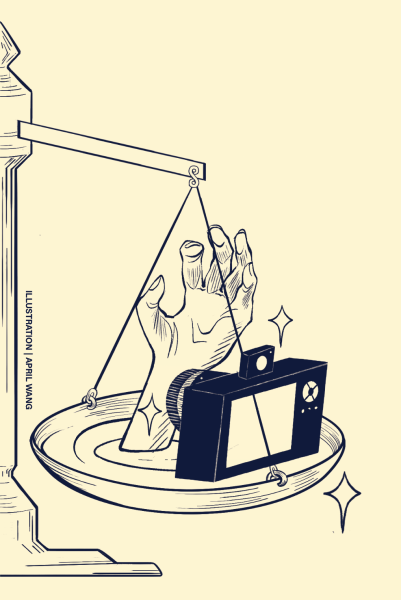Many college essay prompts ask to see some sort of growth, whether emotional, intellectual, physical or otherwise. Unfortunately, this also leads people to question whether their own lives are too boring or mundane to constitute a good essay, especially at MVHS where students are so hyper-focused on crafting a good college application. In fact, it’s a very common complaint to hear from seniors writing essays that “I don’t know what to write because I haven’t done anything interesting enough,” and it’s a very common mindset for people to do activities simply to put them on their resume. We immediately capitalize on any little sparks of passion or interest and turn them into a club, a volunteer organization or a competitive skill.

However, activities become especially unethical when they involve charity (volunteering, donating, etc.) that is done solely for slapping it on a college application. It’s easy to see charity as the perfect opportunity to obtain that sob story that can be milked into a college essay and personal growth that is so much more “interesting” to see on a college application.
However, a big flaw in the college preparation process is using prestigious activities as shallow proof of character, which is often fueled by charity extracurriculars. This comes in the form of voluntourism, the practice of people from first-world countries traveling to third-world countries to do charity while exploring and touring the area. Voluntourism is not uncommon — people will travel to foreign countries to build houses, volunteer at orphanages and teach at schools, all for no longer than a few weeks.
Charity is never inherently bad. But charity also only exists because there is inequity in the world that has to be addressed through charity. Building houses or working at orphanages are wonderful, and probably uplifting for the few people they reach, but oftentimes they are a temporary solution to a problem caused by social issues. They can even further exacerbate those social issues because voluntourism is, at its core, an industry that wants to make money.
Again, this is not to discourage people from doing such volunteering. However, social work requires dedication and understanding of the cause in the same way that honing a skill requires time, energy and knowledge. Even without a natural passion for charity, it is far more off-putting to work simply for the experience than it is to continuously put effort into volunteering, researching and addressing deeper issues. Change starts with your own community, one that you care about and know deeply, not a far-off country with issues you can barely speak to. It’s also a common argument that doing charity is a way to appreciate what you have and foster empathy. Empathy is great, but other people don’t exist to be your life lessons on a college essay.

Not only is it unethical to use other people as a shortcut and replacement for personal growth, but it’s also a disservice to yourself to try and force some sort of life-changing journey. Many people have a misconception that they need to have done something “dramatic” for a university to deem them worthy, but it’s impossible to quantify it through material value like a number of awards or volunteering hours. They might help, but not everyone can even have access to these arbitrary measurements. Growth is internal and being able to show off a trophy has nothing to do with that. It sounds cheesy to say, but it’s the journey, not the destination that matters.
Personal growth and exploring your interests are not mutually exclusive things. There’s no need to sacrifice seemingly “uninteresting” or “useless” hobbies for the sake of doing what best fits your college path. Change often begins with someone’s unique insight into an issue. Maybe you realize how hard extracurricular education is to obtain through playing piano or you discover that local animals are becoming displaced through a habit of taking evening walks. These insights can apply to any major because you’ve gone through that genuine, passion-fueled discovery process. Personal growth means personal investment, so think small, not big, and our passions can snowball beyond our greatest expectations.
Everyone is interesting in their own way. Your activities don’t have to align perfectly with what you want to study in college. It’s those small, seemingly insignificant quirks, like an obsession with dogs or an interest in birdwatching, that make someone unique and their journey worth following, not winning a trophy or receiving an honor for charity work that hundreds of people have already done.









